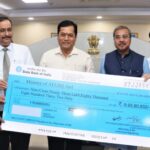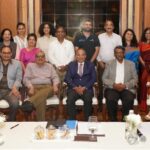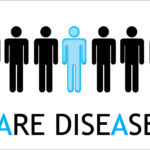Govt Addressing Malnutrition in ‘Mission-mode’: MoS Athawale at IHW Council’s Mega ‘Bharat Nutrition Week’ Conclave. Health experts urge policymakers to break silos and address the spectrum of nourishment deficits in India for better results.The 7-day long conclave to host more than 100 policy makers including those from WHO and UNICEF, nutrition experts.
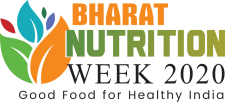

“Since March 2018, our government has initiated POSHAN Abhiyaan that directs the attention and efforts to tackle the problem of malnutrition and address it in a mission-mode. This programme will benefit more than 10 crore people, especially women and children. POSHAN Abhiyaan is an intensely community-based programme that involves family members – husbands, father, mothers-in-law and neighbours – and community health care providers to create awareness on key nutrition behaviours. As a society, it is our responsibility to ensure that everyone gets the required nutrition. The war-footing efforts will ensure people even in the remotest part of India get this necessity,” says Minister of State for Social Justice and Empowerment, Shri Ramdas Athawale.
“There are two Indias in this India comprising the under-nourished and the over-nourished. Both these types are at an increased risk of morbidity and mortality irrespective of sex and across all ages. The issue of malnourishment should be addressed by inculcating healthy habits in children in and outside schools who can influence their peers, teachers, and parents. Besides, people should be made aware of eating habits on three principles: Balance of nutrition; moderation of portion; and variety of food,” says Dr Harshad Thakur, Director, National Institute of Health & Family Welfare, MoHFW.
“Our approach to nutrition is fragmented and approaches mentioned by the Prime Minister, e.g. nutrition cards and nutrition monitors, are very innovative. We need a shift in our approach to nutrition deficiencies: use a lifecycle approach; bringing together all sectors and ministries; move from food security to nutrition security; focus on family-based interventions; and address the spectrum of nourishment which means one who is ‘over-nourished’ with one ingredient may be under-nourished for another,” says Dr Sanjiv Kumar, Chairperson, Indian Academy of Public Health.
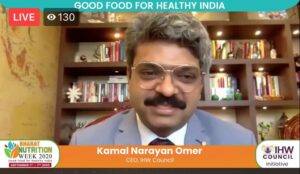

“India’s rank in the Global Hunger Index indicates how prevalent malnutrition is in the country. Jan Bhagidari or public participation is the most important part of our battle against malnutrition. Besides, we must also be mindful towards those who are suffering due to improper nourishment – it is critical to induce a behavioural change in them. The ‘Bharat Nutrition Week’ aims our goal of securing and ensuring access to good food for all,” says Mr. Kamal Narayan, CEO, Integrated Health and Wellbeing (IHW) Council.
Aiming to raise the awareness and discussion around nutrition among children, a fact highlighted by honble Prime Minister Narendra Modi during his ‘Mann ki Baat’ broadcast, the event will have a special segment titled ‘Bharat Nutrition Quiz Show with School Kids’, where students from all over India will participate. Panel discussions with around 100 speakers including government officials of various ministries and institutions; policy experts of WHO and UNICEF; industry leaders, researchers, and medical practitioners will deliberate for over 60 hours on the pressing issues related to availability and access to nutrition. Discussion forums involving leading dieticians, nutritionists, food entrepreneurs and influencers will be held under ‘Good Food Talk Show’ while ‘Healthy Khayega India’, a special live session, will host celebrity chefs.
‘Bharat Nutrition Week’ is being hosted with support from Asian Research and Training Institute for Skill Transfer (ARTIST), WWW Foundation, World of Wellbeing (WOW), and Federation of Obstetric and Gynaecological Societies of India (FOGSI). The event will culminate on 7th September with Bharat Nutrition Awards 2020, honouring organizations, institutions and individuals for their contribution in developing innovative products, conducting new research, grassroot-level initiatives for women, children and elderly people, and spreading awareness and educational programs.





